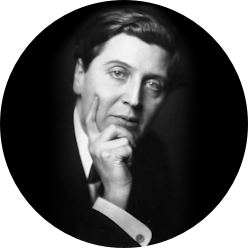
Alban Berg
February 9, 1885 - Vienna (Austria) — December 24, 1935 - Vienna (Austria)
About
Alban Berg, a composer of the modern age nostalgic for the 19th century
Alban Berg was, with Webern, the most prominent representative of the Second Viennese School. At first self-taught, he composed numerous works in the style for the Romantics. His encounter with Arnold Schoenberg in 1904 would be decisive for his musical development. The composer was to learn and assimilate the twelve-tone technique and to apply it to his works without, however, relinquishing lyricism, poetry and Romantic expression.
Alban Berg's incomparable work
Of a calm and introverted disposition, Alban Berg spent almost all his life in Vienna. His operas conveyed his expressionistic Angst like his doubts related to musical language. In Wozzeck (1922), he transcribed musically his vision of death, whereas Lulu is a testament to the unconscious, desire and violence. Weakened by the scandals his works provoked, Berg had difficulty finding his place when faced with modernity and avant-gardism. His personality remained profoundly discreet.
Although his work exploited the Viennese School’s techniques with incomparable artistic sensitivity, its nostalgia, freedom and indefinable purity remain exceptional. He used the serial technique for his Lyric Suite, yet the music is heartrending, evoking his passionate love for Hanna Fuchs-Robertin, Alma Mahler’s sister-in-law. Suffering from bad health, Alban Berg died of septicaemia in 1935 at the age of 50, leaving unfinished the last act of his opera Lulu.

